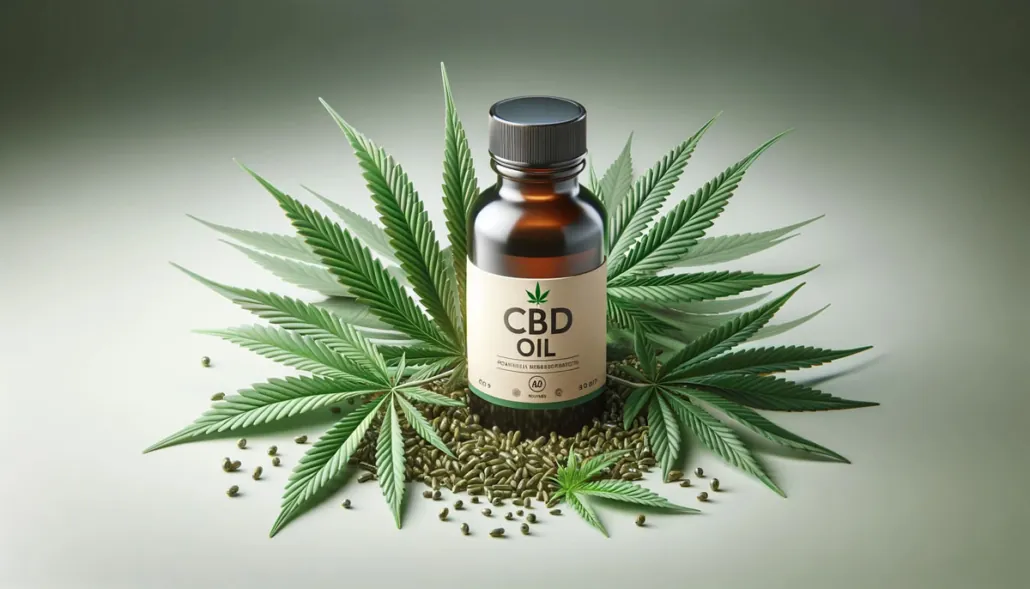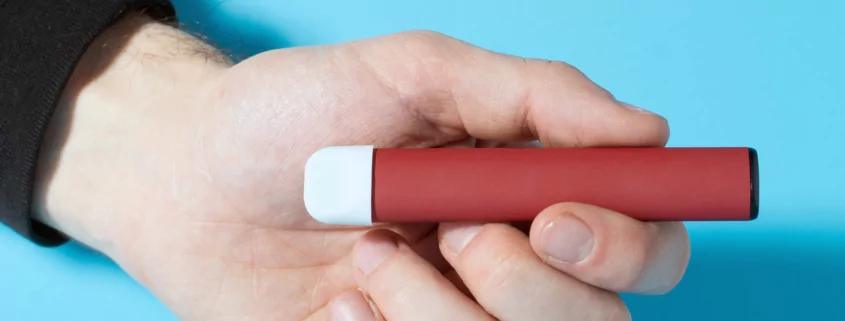Does Vaping Helps to Reduce Anxiety & Stress?
Anxiety is a common human experience that affects millions of people worldwide. As individuals seek ways to manage their anxiety, some have turned to vaping as a potential solution. This article delves deep into the relationship between vaping and anxiety, exploring the potential benefits, risks, and alternatives to help readers make informed decisions about their mental health.
Understanding Anxiety
Anxiety is a complex emotional state that goes beyond simple worry or stress. The mental health charity Mind defines anxiety as:
“What we feel when we are worried, tense or afraid – particularly about things that are about to happen, or which we think could happen in the future. Anxiety is a natural human response when we feel that we are under threat. It can be experienced through our thoughts, feelings and physical sensations.” 1
While occasional anxiety is normal, persistent anxiety that interferes with daily life can become a serious mental health concern. Symptoms of anxiety disorders may include:
- Persistent worry or fear
- Restlessness or feeling on edge
- Difficulty concentrating
- Sleep disturbances
- Physical symptoms like rapid heartbeat, sweating, or trembling
Many people struggle to manage anxiety without assistance, and some turn to potentially harmful coping mechanisms like smoking or substance use.
The Shift from Smoking to Vaping
Research has consistently shown that smoking can exacerbate anxiety symptoms. The physical effects of tobacco smoke, such as shortness of breath and sleep disturbances, often contribute to increased anxiety levels. A study published in the British Journal of Psychiatry found that smokers were more likely to develop anxiety disorders than non-smokers2.
In recent years, vaping has emerged as a potentially less harmful alternative for those seeking to manage their anxiety while reducing the risks associated with traditional smoking.
Please also read:
The Effects of Switching from Smoking to Vaping
How Vaping May Help Alleviate Anxiety
1. Sensory Experience and Stress Relief
Vaping offers a unique sensory experience that may help reduce anxiety levels. The act of vaping itself can be calming for some individuals, providing a ritualistic behavior that offers a sense of control and comfort. Additionally, the wide variety of flavors and aromas available in e-liquids can provide a pleasurable distraction and potentially influence mood.
Research has shown that certain scents can have a positive impact on mood and stress levels. For example, a study published in the Journal of Alternative and Complementary Medicine found that lavender aromatherapy reduced anxiety in patients undergoing coronary artery bypass surgery3. While vaping flavors are not the same as aromatherapy, the principle of using pleasant scents to influence mood may apply.
2. Reduced Health-Related Anxiety
Unlike traditional smoking, vaping doesn’t carry the same severe health risks associated with tobacco use. A comprehensive review by Public Health England concluded that vaping is at least 95% less harmful than smoking4. This reduction in health-related anxiety may contribute to overall stress relief for those who switch from smoking to vaping.
3. Financial Stress Reduction
Vaping can be more cost-effective than purchasing tobacco products, especially in countries with high tobacco taxes. A starter vaping kit can cost as little as £10, with ongoing costs for e-liquids being generally lower than the cost of cigarettes. This financial benefit may alleviate some of the economic stress that often contributes to anxiety.

Ecigator Sticky Prefilled Pod Kit
The Ecigator Sticky Prefiiled Replaceable Vape Pod Kit is new kind of vape kit which the prefilled disposable pod can be changed.
That means you don’t need to throw away the whole kit but just change another pod. Also you can change the pods to taste different flavors.
The Complex Role of Nicotine in Anxiety Management
While vaping may offer some benefits for anxiety management, it’s crucial to consider the role of nicotine, which is present in most e-liquids. Nicotine is a stimulant and highly addictive substance that can have both positive and negative effects on anxiety:
Potential Benefits of Nicotine:
- Short-term stress relief: Nicotine can temporarily reduce anxiety by stimulating the release of dopamine, a neurotransmitter associated with pleasure and reward.
- Improved focus: Some individuals report that nicotine helps them concentrate, which may indirectly reduce anxiety related to task performance.
Potential Risks of Nicotine:
- Increased heart rate and blood pressure: These physiological changes can mimic or exacerbate anxiety symptoms.
- Addiction and withdrawal: Nicotine is highly addictive, and withdrawal symptoms can include increased anxiety and irritability.
- Long-term effects: Regular nicotine use may alter brain chemistry, potentially affecting mood regulation and anxiety levels over time.
It’s important to note that the wide range of nicotine strengths available in e-liquids allows users to control their intake. Some vapers choose to gradually reduce their nicotine consumption over time, potentially mitigating some of the risks associated with nicotine use.
Nicotine-Free Vaping Options
For those concerned about nicotine’s effects, nicotine-free vaping options exist. Vaping at 0% nicotine may provide the sensory benefits of vaping without the potential drawbacks associated with nicotine use. This option may be particularly appealing for individuals who enjoy the ritual of vaping but want to avoid nicotine’s effects on anxiety.

The Potential of CBD Vaping for Anxiety Management
Cannabidiol (CBD), a non-psychoactive compound derived from the cannabis plant, has gained significant attention in recent years for its potential health benefits, including anxiety relief. Some users claim CBD helps with various conditions, including stress and anxiety.
A 2019 study published in the Journal of Clinical Medicine found that CBD may have anxiolytic (anti-anxiety) effects in humans5. Additionally, a 2020 study conducted in New Zealand suggested that CBD may have a positive impact on anxiety and appears safe for users with mental health conditions6.
If considering CBD vaping for anxiety management, keep these points in mind:
- Use only specially formulated CBD e-liquids designed for vaping.
- Opt for low-powered devices designed for CBD vaping to ensure proper delivery.
- Consult reputable sources like the NHS or World Health Organization for accurate information on CBD’s effects and potential risks.
- Be aware that the CBD market is largely unregulated, so choose products from reputable manufacturers who provide third-party lab testing results.
Potential Risks and Considerations
While vaping may offer some benefits for anxiety management, it’s essential to consider the potential risks:
- Long-term health effects: While vaping is considered less harmful than smoking, the long-term health effects are not yet fully understood.
- Addiction potential: Nicotine-containing e-liquids can lead to addiction, which may complicate anxiety management in the long run.
- Regulatory concerns: The vaping industry is subject to ongoing regulatory changes, which may affect product availability and quality.
- Stigma: Some individuals may experience social anxiety related to vaping due to negative public perceptions.

Alternative Strategies for Anxiety Management
While vaping may provide some relief for anxiety symptoms, it should not replace evidence-based treatments for anxiety disorders. Consider these alternative strategies for managing anxiety:
- Cognitive Behavioral Therapy (CBT): A highly effective form of psychotherapy that helps individuals identify and change negative thought patterns and behaviors.
- Mindfulness and meditation: Practices that can help reduce anxiety by promoting present-moment awareness and relaxation.
- Exercise: Regular physical activity has been shown to reduce anxiety and improve overall mental health.
- Lifestyle changes: Improving sleep habits, reducing caffeine intake, and maintaining a balanced diet can all contribute to better anxiety management.
- Medication: In some cases, healthcare providers may recommend anti-anxiety medications as part of a comprehensive treatment plan.
Conclusion: Making Informed Decisions About Vaping and Anxiety
Vaping may offer potential benefits for managing anxiety, particularly for those who currently smoke and are looking for a less harmful alternative. The enjoyable sensory experience, reduced health risks compared to smoking, and potential cost-effectiveness make it an attractive option for some individuals.
However, it’s essential to approach vaping as a tool for anxiety management with caution. Consider the following:
- Understand the role of nicotine and its potential effects on anxiety.
- Explore nicotine-free options if concerned about addiction or stimulant effects.
- Consider CBD vaping as a potential alternative, but be aware of the current limitations in research and regulation.
- Consult with a healthcare professional before using vaping or CBD as an anxiety management strategy.
- Explore evidence-based treatments for anxiety, such as therapy and lifestyle changes, as primary management strategies.
While vaping may provide some relief for anxiety symptoms, it should not replace professional mental health care. If you’re struggling with anxiety, seek guidance from a qualified healthcare provider to develop a comprehensive management plan tailored to your individual needs.
References:
- Mind. (2021). Anxiety and panic attacks. https://www.mind.org.uk/information-support/types-of-mental-health-problems/anxiety-and-panic-attacks/about-anxiety/ ↩︎
- Moylan, S., Jacka, F. N., Pasco, J. A., & Berk, M. (2012). Cigarette smoking, nicotine dependence and anxiety disorders: a systematic review of population-based, epidemiological studies. BMC Medicine, 10, 123. https://doi.org/10.1186/1741-7015-10-123 ↩︎
- Bikmoradi, A., Seifi, Z., Poorolajal, J., Araghchian, M., Safiaryan, R., & Oshvandi, K. (2015). Effect of inhalation aromatherapy with lavender essential oil on stress and vital signs in patients undergoing coronary artery bypass surgery: A single-blinded randomized clinical trial. Complementary Therapies in Medicine, 23(3), 331-338. https://doi.org/10.1016/j.ctim.2014.12.001 ↩︎
- McNeill, A., Brose, L. S., Calder, R., Hitchman, S. C., Hajek, P., & McRobbie, H. (2015). E-cigarettes: an evidence update. Public Health England. https://assets.publishing.service.gov.uk/government/uploads/system/uploads/attachment_data/file/733022/Ecigarettes_an_evidence_update_A_report_commissioned_by_Public_Health_England_FINAL.pdf ↩︎
- Skelley, J. W., Deas, C. M., Curren, Z., & Ennis, J. (2020). Use of cannabidiol in anxiety and anxiety-related disorders. Journal of the American Pharmacists Association, 60(1), 253-261. https://doi.org/10.1016/j.japh.2019.11.008 ↩︎
- Gulbransen, G., Xu, W., & Arroll, B. (2020). Cannabidiol prescription in clinical practice: an audit on the first 400 patients in New Zealand. BJGP Open, 4(1). https://doi.org/10.3399/bjgpopen20X101010 ↩︎
- Austria Plans to Ban Disposable E-Cigarettes - August 5, 2025
- Vaping vs. THC Drinks: Which Cannabis Option Is Right for You? - August 4, 2025
- Colombia’s New Vape Law: A Reality Check on Enforcement - August 4, 2025









